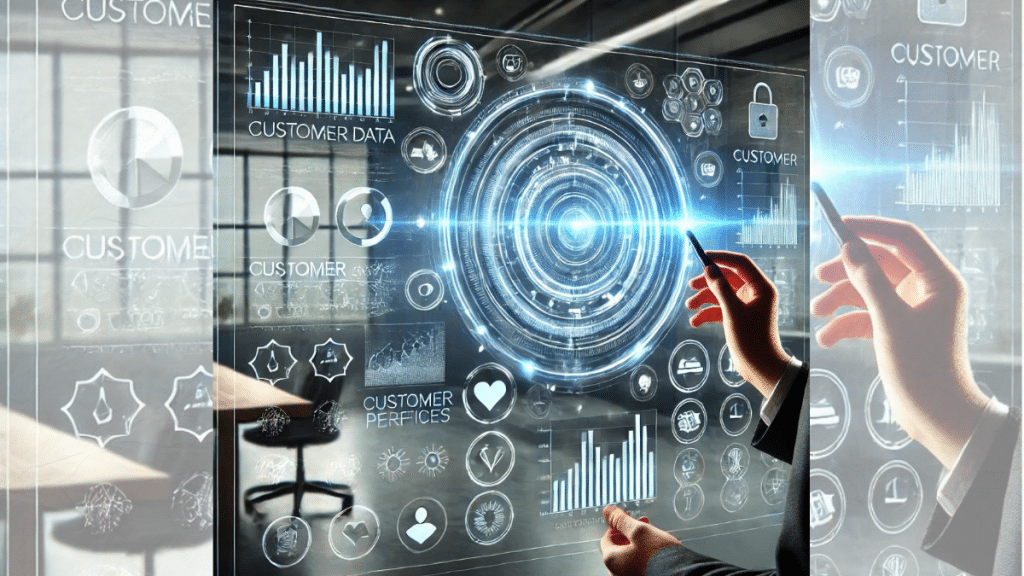Personalization has become a critical factor in shaping customer experiences in today’s digital age. Businesses harness data’s power to tailor their services and products to individual preferences, transforming how customers interact with brands. From streaming services like Netflix, which recommends shows based on past viewing habits, to e-commerce platforms such as Amazon, which suggests products based on browsing history, the use of customer data has revolutionized the consumer journey. This article examines how businesses are leveraging data to deliver personalized experiences, why it matters, and how this approach is even influencing industries like online gambling.
Why Personalization Matters
Consumers today expect a seamless, personalized experience when interacting with brands. They want recommendations that align with their interests, communications tailored to their preferences, and products or services that resonate with their unique needs. Personalization helps businesses create deeper, more meaningful connections with customers, fostering loyalty and encouraging repeat business.
A survey by Epsilon revealed that 80% of customers are more likely to purchase when brands offer personalized experiences. In addition, personalized marketing can significantly enhance a company’s ROI by ensuring that advertisements and offers reach the right audience at the right time.
How Customer Data Fuels Personalization
Personalization is driven by data. Every time a customer interacts with a brand—whether by making a purchase, subscribing to a service, or even browsing online—they generate valuable data points. Businesses collect and analyze this information to gain insights into customer behavior, preferences, and patterns.
Here are some ways businesses utilize customer data to craft personalized experiences:
1. Recommendation Engines
One of the most well-known examples of personalization is the recommendation engines used by companies like Netflix and Spotify. These platforms analyze users’ viewing or listening habits to suggest content that aligns with their preferences. By doing so, they keep users engaged and encourage them to spend more time on their platforms.
2. Personalized Advertising
Online retailers and service providers use customer data to create highly targeted ads. Rather than bombarding customers with irrelevant ads, businesses can tailor their marketing messages based on user’s past behavior, demographics, and interests. Platforms like Google Ads and Facebook Ads offer tools that allow companies to target customers based on their unique profiles.
3. Customized Shopping Experiences
E-commerce giants like Amazon use customer data to offer personalized shopping experiences. When a user logs in, they are greeted with product recommendations based on their browsing history and previous purchases. Personalized email campaigns also notify customers about promotions related to their preferences, making them feel valued and understood.
4. Tailored Content
News and media companies, like The New York Times or YouTube, offer tailored content based on user preferences. By analyzing browsing behavior, these platforms present articles, videos, and features that are most relevant to the individual, ensuring that they keep coming back for more.
Data-Driven Personalization in Online Gambling
The online gambling industry is no stranger to the power of customer data and personalized gambling. In fact, some of the most successful online casinos and betting platforms use data analytics to enhance user experiences and increase engagement.
1. Game Recommendations
Much like Netflix’s recommendation engine, online gambling sites use data from past gaming sessions to suggest new games that align with a player’s interests. For example, a player who enjoys slot games with a specific theme might receive recommendations for similar slot games when they next log in.
2. Personalized Promotions
Online casinos often offer bonuses or promotions that are personalized based on a player’s activity. A regular player who enjoys poker might receive exclusive poker-related promotions, while someone who frequently plays slot games might be offered free spins. This personalized approach not only increases user satisfaction but also drives player retention.
3. Responsible Gaming
Online gambling platforms are also using customer data to promote responsible gaming. By tracking betting patterns, sites can detect unusual behavior and intervene if necessary, offering support to players who might be at risk of developing gambling-related problems. This not only protects the player but also enhances the platform’s reputation for being responsible and player-focused.
The Future of Data-Driven Personalization
As technology advances, the role of customer data in crafting personalized experiences will only become more critical. Artificial intelligence (AI) and machine learning (ML) are likely to play a significant role in improving the accuracy and efficiency of personalization. These technologies can process large amounts of data at lightning speed, allowing businesses to deliver real-time personalized experiences.
In the near future, customers can expect even more seamless integration of personalization in every aspect of their digital lives. From hyper-targeted marketing campaigns to interactive customer service experiences driven by AI chatbots, the possibilities are endless.
The Takeaway on Data-Driven Experiences
In today’s competitive marketplace, personalization is no longer a luxury—it’s a necessity. Businesses that effectively leverage customer data can create tailored experiences that not only satisfy customers but also drive loyalty and increase revenue. From streaming services to e-commerce platforms, data-driven personalization is transforming industries and enhancing how customers interact with brands.
Even in sectors like online gambling, where personalized experiences can directly impact user engagement and satisfaction, businesses are reaping the benefits of utilizing customer data. As technology continues to evolve, the role of data in personalization will become even more significant, shaping the future of consumer experiences across all industries.
